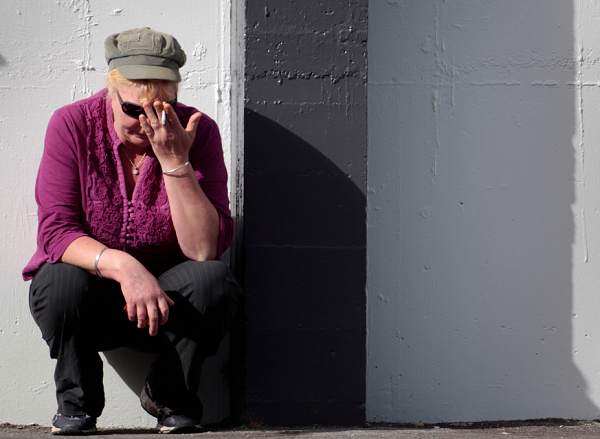PTSD Awareness Month: Symptoms, Cures And Everything To Know

The month of June is designated to bring awareness to post-traumatic stress disorder (PTSD), a mental health problem caused by very stressful, frightening or distressing events.
The National Center for PTSD estimates 7 to 8 percent of the U.S. population will develop PTSD at some point in their lives. The center predicts about 8 million adults will have PTSD during a given year. About 10 percent women as compared to 4 percent men develop PTSD.
“PTSD can happen to anyone. It is not a sign of weakness,” the website says. “A number of factors can increase the chance that someone will develop PTSD, many of which are not under that person’s control. For example, if you were directly exposed to the trauma or injured, you are more likely to develop PTSD.”
Read: Oxytocin For PTSD? Researchers Begin Clinical Trial To Test 'Love Hormone'-Based Therapies
Some of events that could cause PTSD are, serious road accidents; violent personal assaults, such as sexual assault, mugging or robbery; prolonged sexual abuse, violence or severe neglect; witnessing violent deaths; military combat; being held hostage; terrorist attacks; natural disasters, such as severe floods, earthquakes or tsunamis.
According to the National Center for PTSD, the four specific symptoms of the condition are:
1. Reliving an event that can bring bad memories or nightmares, often called a flashback.
2. Avoiding situations or people that remind you of distressing events.
3. Having more negative beliefs and feelings. Showing signs of guilt, shame, disinterest in activities, distrustful of people. Feeling numb during times of happiness.
4. Feeling hyped up, jittery and always on alert. Facing trouble concentrating or sleeping.
Dr. Jeffrey Borenstein, president and CEO of the Brain & Behavior Research Foundation told Fox News: "PTSD, similar to other psychiatric and medical conditions, is not the fault of the person who has the condition. Feeling embarrassed, feeling like you’re at fault in some fashion, can be why people don’t go and seek help."
Read: Ecstasy PTSD Treatments, F.D.A. Approves New Trials To Help Treat Patients
“Many people are affected by it, in particular our returning service members. With appropriate treatments, people can get better,” Borenstein said. “Often people end up suffering in silence rather than seeking help. And with help, people really do get better.”
Borenstein however said he classifies it as more of “prejudice” than a “stigma.”
“I think stigma in many ways is too soft of a word,” he said. “There is a prejudice in our society toward people who are experiencing a mental illness.”
People suffering from PTSD also face other problems such as feelings of hopelessness, depression or anxiety, drinking or drug problems, physical symptoms or chronic pain, employment problems, and relationship problems, including divorce.
Apart from women and men, children can also suffer from PTSD. Symptoms among children vary depending on their age.
1. Children under 6 may find it difficult to spend time around their parents, have trouble sleeping, or act out the trauma through play.
2. Children aged 7 to 11 may have nightmares or become more irritable or aggressive. They may also want to avoid school or friends.
3. Children aged 12 to 18 have symptoms similar to adults, showing signs of depression, anxiety, withdrawal, or reckless behavior.
PTSD can be treated in two ways, psychotherapy or medication. In some case, a combination of both is advised.
Psychotherapy, or counseling, helps in treating PTSD. This is of many types:
Cognitive behavioral therapy (CBT), which is believed to be the most effective treatment for PTSD that is conducted either by cognitive therapy and exposure therapy.
In Cognitive Processing Therapy (CPT), patients learn skills to understand how trauma changed their thoughts and feelings.
In Prolonged Exposure (PE), patients are asked to talk about the trauma repeatedly until memories are no longer upsetting. A similar kind of therapy is called Eye Movement Desensitization and Reprocessing (EMDR), which involves focusing on sounds or hand movements while patients talk about the trauma.
Medications for PTSD can can be effective too, according to the National Center for PTSD. SSRIs (selective serotonin reuptake inhibitors) and SNRIs (serotonin-norepinephrine reuptake inhibitors), which are also used for depression, are effective for PTSD. Prazosin has also been found to be helpful in decreasing nightmares related to the trauma.
© Copyright IBTimes 2024. All rights reserved.





















